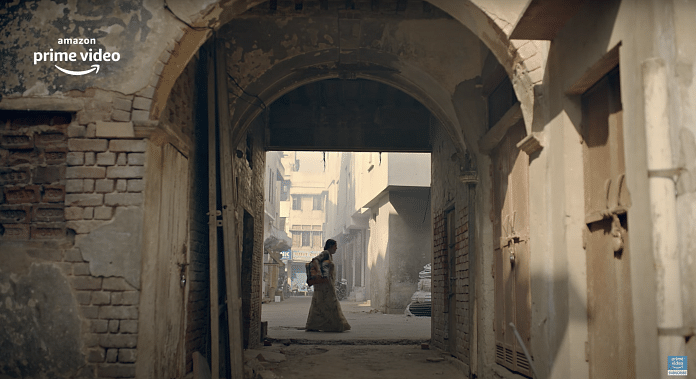Unpaused: Naya Safar is a look at everything that Covid made us face – loss of jobs, searching for a bed in hospitals, cremation grounds and the haunting troubles of the migrant labourers. A sequel to the 2020 Amazon Prime Video release Unpaused, which was an anthology of five short films, the latest offering Naya Safar has been turned into a series with season 1 offering another look back at Covid in five episodes of 15-odd minutes each.
Titled ‘The Couple’, ‘War Room’, ‘Teen Tigada’, ‘Gond Ke Laddu’, and ‘Vaikunth’, each part in Naya Safar looks at the crisis brought on by the pandemic. Though War Room and Vaikunth are standouts, Unpaused: Naya Safar overall is a sincere documentation of the times we have just lived and survived — at least, most of us. And so it is a privilege to even be able to look back at it. .
War Room and the moral dilemma
War Room is a moral drama set in a Covid War Room in Mumbai, directed by Ayappa K.M.
Sangeeta Waghmare, played by Geetanjali Kulkarni, handles emergency calls and allots beds to patients. One day, she receives a request for a man she holds responsible for her son’s suicide. Will Sangeeta do her job, or withhold critical, life-saving information?
War Room opens a window into India’s healthcare system where women like Geetanjali, a Maths teacher, have hardly been talked about because they aren’t ‘frontline warriors’ — even though she is at the front all the time. But Sangeeta is doing her bit in disseminating important information about available beds in government hospitals. The coordinators are often untrained, but shouldering massive responsibility of talking to patients, asking about symptoms, deciding whom to allot beds based on urgency, and consulting doctors while still jostling to find a pen to make a note that could make all the difference in the end.
The stress is palpable–after all, everyone has been exposed to the coronavirus to various degrees. Squabbles break out, as do discussions on Zoom pujas. In the middle of all this, Sangeeta has an added struggle: of making a moral decision. Fate has given her the power to do with the life of a man she believes took away the life of her son. It’s a riveting watch.
Also read: 36 Farmhouse shouldn’t have been made. ZEE5 just wanted a film on lockdown
Deaths, Covid and ‘Vaikunth’
Vaikunth means heaven, except the story is a dystopian reality of what went down in the second wave of Covid. Nagraj Manjule’s Vaikunth is about a worker at a crematorium struggling to cope with Covid deaths. Besides directing the segment, Manjule also plays the protagonist Vikas, who takes tightly wrapped bodies off gurneys, sets them on fire and bears silent witness to the sobs and wails of relatives.
Without PPE kit or mask, Vikas helps people cremate loved ones, while he struggles to have a roof over his head. His landlord wants to throw the family out because Vikas’ father is Covid positive. India reports widespread discrimination based on caste, job, religion, and class — Covid only made it uglier. In the scramble to stay alive, no one cared about those helping the dead attain ‘vaikunth’.
Vikas is forced to bring his son Avinash, played by Arjun Karche, to the facility and worries about his father who is admitted at the same government hospital from where Vikas frequently receives corpses at the crematorium.
Also read: In Chandigarh Kare Aashiqui, Ayushmann Khurrana confronts transphobia, and well
Silence and the loss of language
When I was in college studying World War II and literature, my professor talked about how words lost the ability to convey what people experienced during the war. That is what happened during Covid, especially the second wave. Both War Room and Vaikunth depict that power of silence.
The swift deaths and the crumbling healthcare system in India cannot be expressed in words as we know them. This is perhaps why both Ayappa K.M. and Nagraj Manjule rely on silence instead. Every moment makes your heart ache in the memory of what has passed us, and how we are all bound by that experience.
Unpaused: Naya Safar may not be exceptional, but it definitely is a brave, honest look at what Covid has done to all of us.
Views are personal.
(Edited by Prashant)






